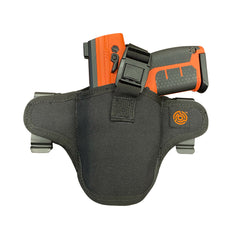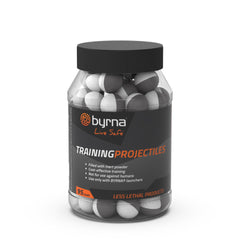
Situational awareness can help save your life. It's a great skill to learn how to use your senses while staying calm and focused - this life-saving skill has helped people stay away from disaster. It has helped law enforcement officers detect threats and citizens escape dangerous situations.
I'll show you five techniques to build awareness - three warning signs you'll want to watch for and some common mistakes to stay away from. You'll also learn how to find a balance between vigilance and security. These proven practices can help protect you and your family. No tough training - just easy methods that work in situations.
Let's jump in together and build your situational awareness skills.
Table of Contents
What Is Situational Awareness?
Situational awareness is actually pretty easy once you know how it works. You just need to take a look at your surroundings and see what's going on around you! Imagine yourself as a movie director keeping track of the actors in your community.
Your brain naturally collects loads of information from the world that surrounds you. You'll see people's faces and how they move - you'll hear different sounds and see any changes nearby. The nice thing is that your brain decides what's worth paying attention to and what isn't.
This natural filtering system works just like your email spam folder. Sometimes, this helps you out quite a bit - especially when you need to start with something that matters and tune everything else out. But this automatic filtering can sometimes work against you, too. You might end up missing some clear warning signs that could tell you something concerning is about to happen.

Situational awareness works in three main steps, according to the experts who study these things. You'll start by finding out what's happening. Then you find out what it means and finally try to guess what might happen next.
Your location can affect what catches your attention. You'll probably start with the people and vehicles moving around you when walking down a busy street. But if you're hanging out in a peaceful and quiet park, any unusual noise or movement will stick out. Your brain naturally adjusts its filters depending on where you are and what you're doing.
Your previous experiences can affect how you're aware of what's going on around you. Let's say someone has stolen from your pocket before. You'll probably be extra careful when strangers get too close in crowded areas. Your brain creates these patterns from your previous experiences and uses them to find potential dangers faster.
The way you process everything going on isn't always perfect, though. You might focus too much on obvious dangers while missing the soft warning signs. Sometimes, you'll get completely absorbed in your phone or lost in thought and miss what's happening around you. That's why you need to actively practice being aware of your surroundings every single day.
Why Does It Matter?
Your instincts can kick in fast when something feels wrong. You might see it while walking down a dark street with footsteps behind you - or when someone stares too long at the grocery store. These gut feelings aren't random - your brain is actually picking up soft danger signs.
I found this out firsthand one night when heading to my car. My instincts started buzzing when I spotted a group of guys who were loitering in the parking area. Instead of brushing off that feeling, I went back inside and asked a security guard to walk with me. Later, I learned someone else got robbed in that exact location.
Dangerous situations don't just pop up out of nowhere. You'll usually see these warning signs build up slowly over time. You might talk yourself out of these feelings because you don't want to seem paranoid or make others uncomfortable.

Your safety depends on staying alert to your surroundings - this doesn't mean living in non-stop fear. It means tuning into what's happening around you and trusting your gut. Your brain processes small facts you might not consciously register, and these add up to that nervous feeling in your stomach.
You can probably miss signs of danger when you zone out on your phone while walking or driving. That car drifts between lanes, or the person follows too close behind. But you probably won't see either one.
Your attention strays from what's happening around you. Between staring at screens and being lost in thought, you can become an easy target. Criminals actively search for people who look distracted or unaware of their surroundings.
Strong situational awareness means staying connected to the present second. Keep your head up while walking and scan your environment. As soon as you walk into a new area, find the exits and watch how others are acting.
Core Levels Of Awareness
You need to stay alert to your surroundings instead of drifting through life in what the experts call Condition White. People who are glued to their phones or lost in their thoughts become easy targets for criminals - and they find themselves unprepared when emergencies strike.
Your best state is Condition Yellow - you can stay relaxed while keeping track of what's going on around you. You'll naturally see the people nearby and find the available exits like a curious tourist in a new and fun city without feeling stressed about it.
A suspicious situation might trigger you to change to Condition Orange. You might see someone following too close behind you at night. Your attention will zoom in on that possible threat (but you'll also track ways to escape if needed).
You have to act immediately when a real threat puts you into Condition Red. Your body floods with adrenaline, which makes your heart race - but this intense state is too draining to stay in for long.

The real skill comes from moving between these awareness states throughout your day. While shopping, you might start in Yellow, escalate to Orange after finding some questionable behavior, then return to Yellow once everything seems normal again.
Police officers always switch between these awareness levels during their shifts. Their job will need them to flip between casual alertness and high-intensity focus multiple times per hour. It's mentally demanding and takes years to get familiar with.
Most people have problems finding the right awareness level. Some people stay zoned out in White, which leaves them wide open to danger. Others remain on high alert in Orange or Red, so they jump at every little sound until they completely burn themselves out.
Your situational awareness should work more like a sliding scale than a toggle switch. You should adjust your alertness based on what's happening in your environment. For most situations, that balance of relaxed awareness will serve you well.
Tips To Strengthen Awareness
Stay aware of your surroundings at all times! Most people walk around in their own little bubbles, focused on their phones or lost in their thoughts - which makes them easy targets for criminals.
I learned this the hard way one late night. While walking to my car, I was too busy texting to see two men following me through the parking lot - they changed direction when I finally looked up, and my gut screamed that something felt wrong. Now, my phone stays in my pocket until I'm safely in my car.
Your body picks up on danger signs before your mind processes them. Those ancient survival instincts kept our ancestors alive for a real reason. Trust that feeling when something feels unsettling - don't let politeness override your safety facts.

Keep an eye on how people move and behave around you. Someone popping up repeatedly in different locations could be following you. Watch for people wearing clothes that don't match the weather or who seem out of place. See if anyone works too hard to stay away from eye contact or stares too intensely at others.
Our devices leave us more exposed than ever before. You practically advertise yourself as an "easy target" to thieves and attackers when you walk around with expensive phones out and headphones on. While walking alone, keep your phone tucked away and your head up with your eyes moving.
You can defuse threatening situations when you find them early on. Think of yourself as a human security camera that's always scanning the area around you. Always know your escape routes. Watch who comes and goes from any area. Take a look at anyone who seems overly focused on watching others.
More Concepts And Alternatives
Your situational awareness skills run deeper than you paying attention to what's around you. When you're aware of what's happening and why it's happening, then you'll be better prepared for anything that comes your way. You're like a character in a video game - always scanning your environment and making quick decisions to stay ahead.
Emergency response teams show us how this works in real life. During the Fukushima nuclear disaster in 2011, first responders had to make some life-changing decisions that would affect thousands of people. They couldn't just stare at radiation numbers on a screen - they needed to know what those readings meant for everyone's safety.
Your awareness should flow like a continuous cycle of observation, thought, and action. The COVID-19 pandemic showed this when officials had to predict how their communities would respond to hard options about lockdowns and mask rules.

Even small facts can tell us something. A security guard might see someone walking past the same building over and over. While this might mean nothing at all, it could also signal someone plotting something dangerous. The guard needs to piece together the timing, the person's actions, and all else happening nearby.
You might fall into the trap of only looking for obvious threats. You'll find that suspicious package - but you could miss the group slowly closing in around you. People zone out with their phones or blast music through their headphones. Before they know it, they've created their own hazardous blind places.
Success in situational awareness means you need to use every sense and trust your gut feelings (those instincts matter). Your brain picks up on warning signs before you even realize what's wrong - it's always processing the little clues in your environment.
Nature gives us a perfect example of this. Animals in the wild stay alive by always checking their surroundings and watching for anything unusual. Their survival can depend on detecting danger early, and you need the same skill - especially when you're somewhere unfamiliar or in a new situation.
Real-World Benefits And Examples
You'll scan your surroundings and watch for any potential threats when you walk to your car at night. You already use these skills in your life without even thinking about it.
Law enforcement is especially good at reading their environment for any signs of danger. My police officer friend spotted some issue at a bar way before anyone else just by looking at one guy's body language. The man was standing in an aggressive and hostile way with his fists balled up tight. This told my friend a fight was about to break out. If you know what to look for, it can give you an early advantage in these situations.

Your safety at work comes down to paying attention to what's happening around you. Construction workers can hear unusual noises from unstable scaffolding before it causes any problems. Office workers will find those loose cables that could trip someone walking past their desk. These quick observations help you to stop accidents before they ever happen.
Your smartphone blocks your ability to stay alert and aware. You can miss important activities happening right there in front of you when you're absorbed in your screen. You become an easy target for accidents or criminals when you text while walking.
You don't need to be always on edge or scared to stay aware. Your brain naturally picks up on strange sounds or movements at the edge of your vision. It already collects all this information for you. You just need to start paying attention to these signs.
Sharp observers see when someone is following them too closely, or they see a car swerving erratically before it causes a crash. You can usually stay away from problems altogether when you catch these early warning signs.
Protect Yourself and Your Family
These safety concepts take some dedication and practice to build up your situational awareness - but you'll gain skills that help you for a lifetime. People can feel way more confident and capable when they start paying attention to their environment and practicing these techniques, too.
Your personal safety can depend on finding the right balance between feedback from your gut feelings and making the most of modern security equipment. Though training and technology can make you safer, they work best when you combine them with your own street smarts and experience. A big part is discovering a security strategy that naturally fits into your schedule.

We at Byrna Technologies have innovative and less-lethal self-defense products that give you security without the complications of firearms. Our line of personal security devices ships right to your door and stays legal across all 50 states. Thousands of customers depend on our protective gear and handheld equipment. We have everything from rifles to pistols - even a Ballistipac backpack with armor lining.
Head over to Byrna.com and see what kind of change self-defense tools can make in your security and your peace of mind!




